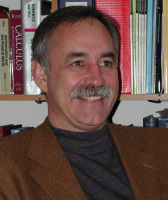研究领域
Synaptic Signaling in Health and Disease Our research focuses on 1) the physiology, pharmacology, and pathology of synaptic transmission in the mammalian brain, and 2) the regulation of intracellular calcium homeostasis. The two themes ultimately converge in our quest for understanding how long-term alterations in the excitability of nerve cells and circuits are responsible for offsetting the frail balance between excitation and inhibition. Tipping this balance, either acutely of chronically, results in the nervous system showing signs of abnormal activity leading to specific brain disorders. We study synaptic transmission and the activation of extrasynaptic receptors in the healthy and the diseased brain. We presently carry out research in animal models of epilepsy, Huntington's disease, stress, alcoholism, PMS/PMDD, postpartum depression, while also recording from human brain tissue surgically removed for the treatment of epilepsies. By studying the fundamental mechanisms responsible for the altered synapses and circuits our studies will lead to novel therapies for a number of devastating neurological and psychiatric disorders. The experimental approaches we use include patch-clamp recordings (whole-cell, single channel and perforated patch) in brain slices, in acutely isolated animal and human neurons, or in cultured neurons/slices; chronic recordings in vivo to monitor long-term changes in the excitability of circuits; infrared and fluorescent video microscopy and simultaneous recordings in live brain tissue; various neuroanatomical and immunohistochemical techniques; measurement of intraneuronal calcium and the binding kinetics of calcium to various calcium-binding proteins; molecular biological approaches aimed at reducing or altering specific brain proteins as in genetic knockouts/knockins and various methods aimed at altering cellular protein levels.
近期论文
 查看导师最新文章
(温馨提示:请注意重名现象,建议点开原文通过作者单位确认)
查看导师最新文章
(温馨提示:请注意重名现象,建议点开原文通过作者单位确认)
Engel Jerome, Thompson Paul M, Stern John M, Staba Richard J, Bragin Anatol, Mody Istvan Connectomics and epilepsy Current opinion in neurology, 2013; 26(2): 186-94.
Engel Jerome, Pitkänen Asla, Loeb Jeffrey A, Edward Dudek F, Bertram Edward H, Cole Andrew J, Moshé Solomon L, Wiebe Samuel, Jensen Frances E, Mody Istvan, Nehlig Astrid, Vezzani Annamaria Epilepsy biomarkers Epilepsia, 2013; 54 Suppl 4: 61-9.
Ferando Isabella, Mody Istvan GABAA receptor modulation by neurosteroids in models of temporal lobe epilepsies Epilepsia, 2012; 53 Suppl 9(2): 89-101.
Faas Guido C, Mody Istvan Measuring the kinetics of calcium binding proteins with flash photolysis Biochimica et biophysica acta, 2012; 1820(8): 1195-204.
Faas Guido C, Raghavachari Sridhar, Lisman John E, Mody Istvan Calmodulin as a direct detector of Ca2+ signals Nature neuroscience, 2011; 14(3): 301-4.
Barth Albert M I, Mody Istvan Changes in hippocampal neuronal activity during and after unilateral selective hippocampal ischemia in vivo The Journal of neuroscience : the official journal of the Society for Neuroscience, 2011; 31(3): 851-60.
Tao Jifang, Wu Hao, Lin Quan, Wei Weizheng, Lu Xiao-Hong, Cantle Jeffrey P, Ao Yan, Olsen Richard W, Yang X William, Mody Istvan, Sofroniew Michael V, Sun Yi E Deletion of astroglial Dicer causes non-cell-autonomous neuronal dysfunction and degeneration The Journal of neuroscience : the official journal of the Society for Neuroscience, 2011; 31(22): 8306-19.
Mody Istvan, Maguire Jamie The reciprocal regulation of stress hormones and GABA(A) receptors Frontiers in cellular neuroscience, 2011; 6(3): 4.
Gehman Lauren T, Stoilov Peter, Maguire Jamie, Damianov Andrey, Lin Chia-Ho, Shiue Lily, Ares Manuel, Mody Istvan, Black Douglas L The splicing regulator Rbfox1 (A2BP1) controls neuronal excitation in the mammalian brain Nature genetics, 2011; 43(7): 706-11.
Mann Edward O, Mody Istvan Control of hippocampal gamma oscillation frequency by tonic inhibition and excitation of interneurons Nature neuroscience, 2010; 13(2): 205-12.
Clarkson Andrew N, Huang Ben S, Macisaac Sarah E, Mody Istvan, Carmichael S Thomas Reducing excessive GABA-mediated tonic inhibition promotes functional recovery after stroke Nature, 2010; 468(7321): 305-9.




 京公网安备 11010802027423号
京公网安备 11010802027423号